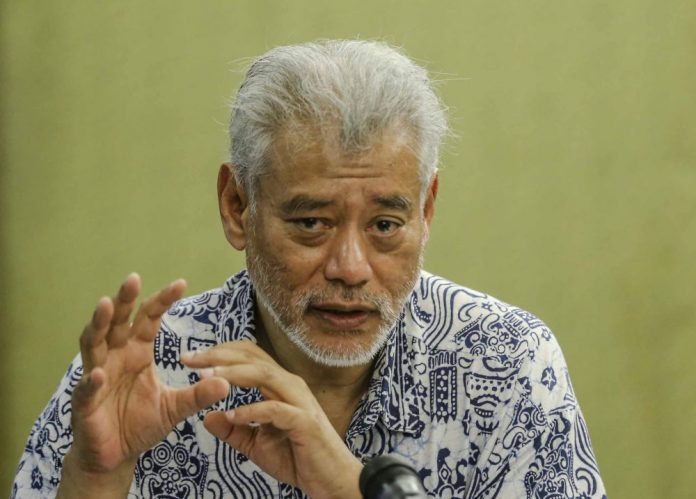.JPG)
KUALA LUMPUR, Dec 10 — During this difficult time of an unprecedented health crisis which has disrupted global supply chains, it is crucial for Malaysia to be self-dependent and invest locally rather than depend on foreign investors, according to an economist.
“The foreign direct investment (FDI) is not going to save us especially this time. We have to think primarily in terms of Malaysians investing for Malaysia going forward and to think about the real economy, rather than financial indicators,” said Khazanah Research Institute (KRI) research adviser Professor Jomo Kwame Sundaram in an online forum entitled “12MP: A Conversation with Datuk Seri Mustapa Mohamed” today.
Despite the difficulty, Jomo noted that the Covid-19 pandemic had also given the opportunity for policymakers to think much more seriously about investment in the real economy and how it might contribute to the well-being of the people.
Jomo voiced his concern that there might be repercussions on Malaysia for being too integrated with China.
“We also need to think very seriously, in particular, about food and to link the whole question of food security to nutrition. Too many Malaysians are suffering from malnutrition because they don’t get enough vitamins, minerals, and are eating the wrong things.
“Based on KRI research, we found that the average Malaysian is not going to be in good health and this is important for us to tackle, especially when we are increasing the retirement age of the people,” he said, adding that more than half of the Malaysian population do not have either Employees Provident Fund or pensions.
The report which was released early this month said Malaysians are living longer but are not necessarily healthier. It states that life expectancy alone is not an adequate measure of the population’s health as many Malaysians experience debilitating health conditions such as heart diseases, back pains and mental ill health, especially in their later years.
By using the healthy life expectancy indicator or HALE, the report said an average person’s healthy life expectancy in 2019 was 65.5 years.
Meanwhile, Jomo also said there should be a thorough discussion on how the economy can move ahead.
“We should use this disruption which has taken place to rethink our priorities and to rethink how to revive the economy.
“There needs to be a discussion on how the economy can go, rather than how we are trying to simply go back to the normal life where businesses can be as usual once some ‘magic’ happen…be it due to the vaccine or something else,” he added.
Jomo was one of the panellists during the two-hour forum.
On the other hand, another panellist, Tan Sri Yong Poh Kon, chairman of Royal Selangor International Sdn Bhd, is of view that the country should attract as much FDI as possible by making policies more investor friendly.
“We should examine why Singapore can have such high FDIs, so much so their citizens account only for 10 to 12 per cent of the equity. If we were successful in attracting the same (level of) FDIs, the economy will expand faster.
“Among the effects of higher FDIs is a more controlled utilisation of foreign labour via more market-oriented levy system with incentives and better education system.”
Meanwhile, Adjunct Professor, International Institute Public Policy and Management, Tan Sri Sulaiman Mahbob said the 12th Malaysia Plan 2021-2025 (12MP) should consist of a long-term outline perspective plan or OPP with the objective of releasing the Malaysian economy from the middle-income trap during the 2021-2030 period.
“The OPP should address four concerns; structural constraints, labour productivity, export potential of the services sector, as well as the issue of distributive justice (growth and equity).
“The 12MP needs a concrete market-based solution (to address) this concern as a basis for long-term political economic calculus of the nation. I have one immediate request: please expedite the mainstreaming of the Orang Asli community (indigenous people)… they have been left behind a little too long,” he said.
The unveiling of 12MP has been postponed to early next year to allow for more input from stakeholders and importantly to take into consideration the policy adjustments and economic reforms needed to rebuild and restructure the economy in the post-pandemic period.
Today’s forum was attended by some 150 participants from the business community, civil society, academic, and general public to keep abreast of the country’s medium-term economic development plan, policies and strategies that would be encapsulated in the 12MP. — Bernama


